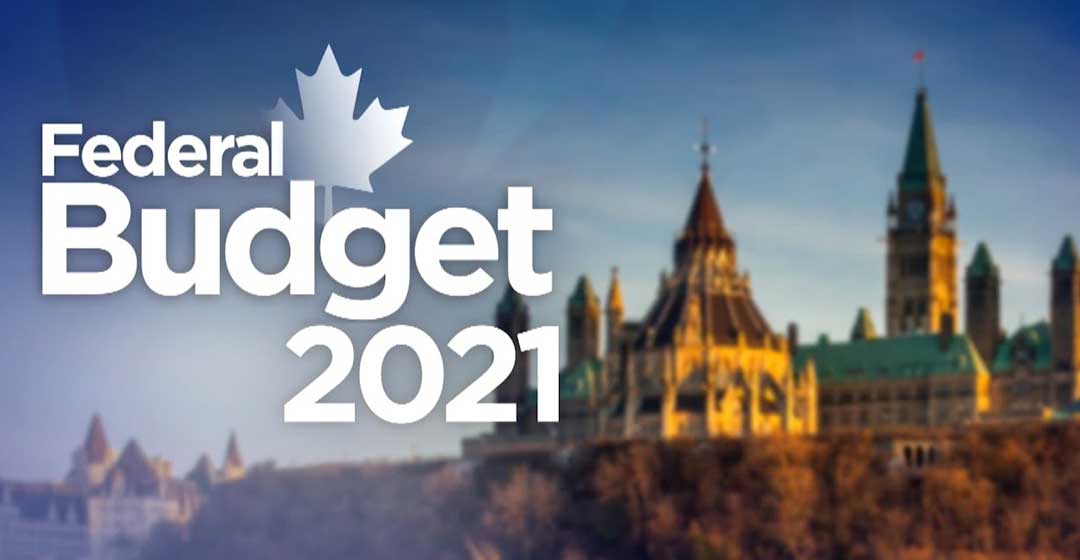
On April 19, 2021, Deputy Prime Minister and Finance Minister Chrystia Freeland tabled in the House of Commons the Liberal Government’s first federal budget in more than two years, A Recovery Plan for Jobs, Growth, and Resilience (Budget 2021). Budget 2021 contains tax measures that provide additional COVID-19 support to Canadian businesses, promote clean energy, introduce new sales and excise tax measures, limit interest deductibility and address certain cross-border financing structures. These measures include:
COVID-19 Support and Recovery
- Extending existing COVID-19 emergency business supports and introducing a new Canada Recovery Hiring Program;
- Promoting immediate expensing of the acquisition of certain depreciable capital property (up to $1.5 million per year) by Canadian-controlled private corporations;
Clean Energy Investment
- Amending the list of eligible Class 43.1 and 43.2 clean energy equipment;
- Offering limited corporate income tax rate reductions for manufacturers of zero-emission technologies;
- Creating a new input tax credit for certain capital investments in carbon capture, utilization, and storage projects;
International Tax/General Corporate Tax
- Introducing new rules to limit the amount of net interest expense that may be deducted in computing Canadian taxable income and to limit the deduction of amounts paid or received under hybrid mismatch arrangements;
- Proposals to overhaul Canada’s transfer pricing rules following the Federal Court of Appeal decision in Her Majesty The Queen v Cameco Corporation(2020 FCA 112);
- Committing to continuing the Government’s work to modernize the general anti-avoidance rule (GAAR);
Sales/Excise Taxes
- Committing to creating an interim digital services tax applicable to digital services businesses and to enact previously announced GST/HST measures applicable to e-commerce platforms;
- Introducing an excise duty on vaping products and a luxury tax on personal use vehicles, boats, and planes;
Compliance/Audit Powers
- Restructuring Canada’s transaction disclosure rules, introducing a new class of “notifiable transactions,” and requiring disclosure of uncertain tax positions; and
- Strengthening the CRA’s audit authority to compel persons to answer all proper questions for any purposes related to the administration or enforcement of, amongst other statutes, the Income Tax Act(Canada) and the Excise Tax Act(Canada).
Source: McCarthy
Newsletters
No Results Found
The page you requested could not be found. Try refining your search, or use the navigation above to locate the post.
Events & Sponsorship
No Results Found
The page you requested could not be found. Try refining your search, or use the navigation above to locate the post.
Articles & Publications
Keeping payroll on course during crisis
Staffing changes and government relief measures add to payroll management challenges during the pandemic Of the many business challenges that have emerged from the disruption of the COVID-19 crisis, the human resources implications have been some of the most difficult...
2 million Canadians who haven’t yet filed taxes could face benefits interruption
Even in the warped reality of the COVID-19 pandemic, Canadians must file their taxes to receive many of the benefits they’re entitled to. Around two million people could face interruptions to some federal and provincial payments if they wait too long to send in their...
CEWS Update – Federal Government redesigns CEWS for Period 5 and onwards
On July 17, 2020, the Government of Canada released details, as well as draft legislation, in respect of a redesigned Canada Emergency Wage Subsidy (CEWS) program effective from July 5, 2020. Pursuant to the backgrounder, the estimated total fiscal cost in 2020-21 for...
Canada Emergency Wage Subsidy (CEWS)
The Canada Emergency Wage Subsidy (CEWS) supports employers that are hardest hit by the pandemic, and protect the jobs Canadians depend on. The subsidy generally covers 75% of an employee's wages – up to $847 per week - for employers of all sizes and across all...
Canada Emergency Response Benefit
What is the Canada Emergency Response Benefit If you stopped working because of COVID-19, the Canada Emergency Response Benefit (CERB) may provide you with temporary income support. The CERB provides $500 a week for up to 16 weeks. How to apply We will start accepting...